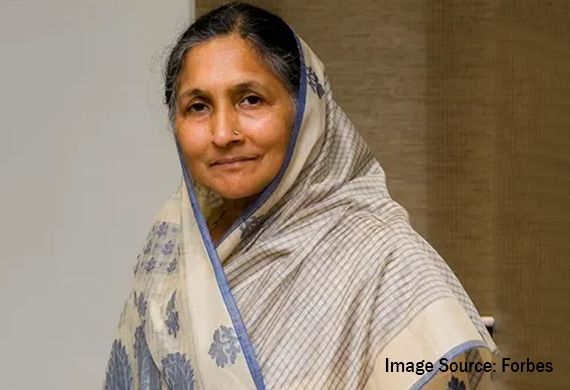
Women, Are you Facing Gender-Pay-Gap? Then Wear Your Shoes
By: Anamika Sahu, Managing Editor | Wednesday, 25 November 2020
Women empowerment and equality have been two buzz words of the past few years, more so in 2020. However, it is an open fact that despite more men speaking about it and few acting on them, women have to continue their war of equality. From personal to professional lives, this war is omni-present – beyond boundaries, beyond region and beyond politics.
“Among the 153 countries studied, India is the only country where the economic gender gap is larger than the political gender gap,” said World Economic Forum’s Gender Gap Index in 2020. The report also ranked India 149th in economic participation and opportunity, and 117th in wage equality for similar work. Like I mentioned, this gap is widely spread across the globe. Even the developed nation, US, couldn’t fix the gap. According to the US Census in 2018, women earned 81.6 cents to every dollar earned by men.
The gender pay gap is quite prevalent in India and skewed sex ratio in labour participation is one of the largest reasons behind this widening gap. According to the Monster Salary Index in 2019, around 46 percent of women believe that there is a perception that they will quit after maternity leave. While there is also a general stereotype that women cannot perform well in leadership positions due to their commitments to their family or household, which leads to a fall in the number of women who get promoted to senior positions or get an opportunity to reach there.
Some research shows that women are more reticent than men to negotiate their salary offers. But the big question remains that despite equal education, and equal experience, what is keeping women to achieving pay-equality? Is it the confidence problem, or is salary negotiation a men’s skill? However, the bigger question is why leave the money on the table?
What is the Answer?
Possibly the answer is simple. It has more to do with how women are treated when they negotiate than it has to do with their confidence and/or negotiation skills. Various studies have time and again revealed that the social cost of negotiating for higher pay is more for women than men. Women tend to get nervous when negotiating for higher pay as they think self-advocating or negotiating would present a socially difficult situation for them.
As mentioned in an HBR article, the true gender pay gap is not known with certainty, but when comparing qualified people doing the same job, most estimates by labor economists put it at 10-20 percent. The then PepsiCo CEO, Indra Nooyi posted in her Facebook in 2017, “Women have fought long and hard for a seat at the table. My role at PepsiCo is a testament to the strides we’ve made. Yet as women enter the workforce in larger numbers than ever before, new challenges emerge. We need to eliminate a wage gap that has women around the world earning the same amount men did roughly a decade ago. We need to empower women by providing them with the support they need to do their jobs and care for their families — because no one should have to choose between their career aspirations and those they love. I’m fighting for gender parity because businesses thrive when we open the doors of opportunity to extraordinary women, and societies thrive whenever and wherever we can unlock the potential of all our people, women and men alike.”
Though there remains the need to find a solution to the cause, it is time ‘SHE’ wears the shoes and gears up to fight her battle of equal-pay. Just don’t underestimate yourself, have patience and don’t accept the first over that comes your way, negotiate for what is fair, and remember, silence is not your friend.






